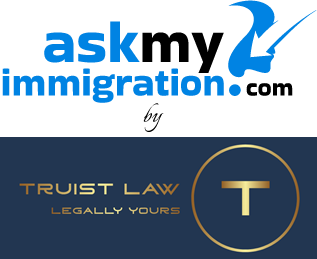Services List
- E-1 Visa
- E-2 Visa
- E-3 Visa
- EB-1 Visa
- EB-2 Visa
- EB-3 Visa
- EB-4 Visa
- EB-5 Visa
- F-1 Visa
- H-1B Visa
- K-1 Visa
- J-1 Visa
- L-1A Visa
- L-1B Visa
- M-1 Visa
- O-1 Visa
- P Visa
- R-1 Visa
- TN Visa
- Asylum & Deportation
- Citizenship by Investment
- Employer Sponsored Green Card
- Green Card Renewal
- Green Card Through Marriage
- National Interest Waiver
- Naturalization
- Perm. Labor Certification
- Reentry Permit
- Refugee Travel Document
Related Downloads
The F-1 visa is a non-immigrant student visa that allows foreign nationals to study in the United States. It is one of the most common types of student visas and is issued by the United States Citizenship and Immigration Services (USCIS). In this article, we’ll cover everything you need to know about the F-1 visa, including eligibility requirements, the application process, and more.
Eligibility Requirements for the F-1 Visa
To be eligible for an F-1 visa, the applicant must be enrolled in a full-time academic program at a US institution. The program must be approved by the Student and Exchange Visitor Program (SEVP), which is a part of the US Department of Homeland Security. Additionally, the applicant must have sufficient funds to cover their tuition fees and living expenses while studying in the United States. They must also have a residence outside the United States, which they have no intention of abandoning.
Application Process for the F-1 Visa
The first step in applying for an F-1 visa is to obtain acceptance from a US institution. Once accepted, the institution will issue a Form I-20, which is a certificate of eligibility for non-immigrant student status. The applicant must then pay the SEVIS fee and complete the DS-160 form, which is the online non-immigrant visa application. After completing the DS-160 form, the applicant must schedule an interview at the US embassy or consulate in their home country. During the interview, the consular officer will review the applicant’s documents, including the Form I-20, DS-160, and proof of financial support.
Benefits of the F-1 Visa
The F-1 visa offers several benefits to foreign nationals who wish to study in the United States. Firstly, it allows students to pursue higher education in some of the best universities and colleges in the world. Secondly, F-1 visa holders are allowed to work on-campus for up to 20 hours a week during the academic year and full-time during the summer months. They can also participate in off-campus employment through the Curricular Practical Training (CPT) and Optional Practical Training (OPT) programs. Additionally, F-1 visa holders can remain in the United States for up to 60 days after the completion of their academic program to prepare for departure or to change their status to another visa category.
In summary, the F-1 visa is a non-immigrant student visa that allows foreign nationals to study in the United States. To be eligible for an F-1 visa, the applicant must be enrolled in a full-time academic program at a US institution, have sufficient funds to cover their expenses, and have a residence outside the United States that they have no intention of abandoning. The application process involves obtaining acceptance from a US institution, completing the DS-160 form, and scheduling an interview at the US embassy or consulate. The F-1 visa offers several benefits, including the ability to pursue higher education in the United States, work on-campus, participate in CPT and OPT programs, and remain in the United States for up to 60 days after completing the academic program. If you’re a foreign national looking to study in the United States, the F-1 visa may be a great option for you.
Frequently Asked Questions
When a foreign national is granted an F-1 visa, they are typically allowed to stay in the United States for the duration of their academic program, plus an additional 60 days. If the student needs more time to complete their program, they may be eligible for an extension of their stay.
It is important for F-1 visa holders to maintain their status while studying in the United States. This includes attending all classes and maintaining a full-time course load, which is typically 12 credit hours per semester. F-1 visa holders must also keep their Form I-20 up to date and valid, and they must report any changes in their contact information or academic program to their designated school official (DSO).
F-1 visa holders are generally allowed to travel outside of the United States and re-enter as long as they have a valid F-1 visa and a valid travel signature on their Form I-20. However, there are some exceptions, such as when a student's country is on the list of state sponsors of terrorism or if they are traveling to a country that is subject to a travel ban. In those cases, the student may need to obtain a waiver or additional documentation before traveling.
F-1 visa holders may be able to bring their spouse and/or children to the United States on an F-2 visa. However, F-2 visa holders are not allowed to work in the United States and may only engage in part-time study.

